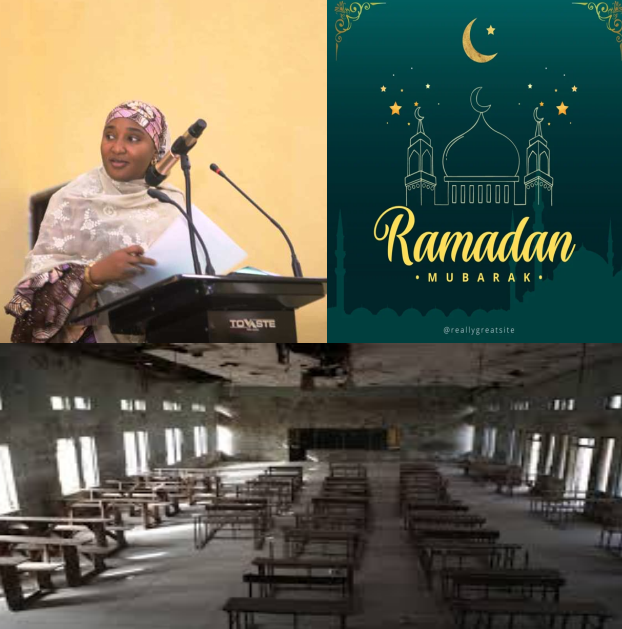
Debates have been ongoing over the closure of schools in some Northern States because of Ramadan fasting.
The Minister of State for Education, Suwaiba Ahmad, has expressed her displeasure over the decision of some Northern State governments to suspend academic activities for five weeks because of the Ramadan fasting.
Four States in the North, Bauchi, Katsina, Kebbi and Kano reportedly ordered state owned schools and private schools to shutdown from February 26 to April 5, while the Ramadan fast is observed.
This according to the States government is to allow the majority of their Muslim children observe the Ramadan fast unperturbed.
Minister Ahmad has pleaded with the State governors to reconsider their decision, pointing that there is no where it is written that schools must be shut during Ramadan fast, that even Saudi Arabia which is the bedrock of Islamism do not shut down schools during Ramadan, but merely adjust their academic calendar to suit the season.
- Woman Leaves Husband after Falling in Love with ChatGPT
- Court Sentences Late Nigerian Gospel Singer Osinachi’s Husband To Death By Hanging
- UTME 2025: Peter Obi Blasts JAMB Over Early Exam Schedule
- JUST IN: Senator Natasha Tenders Apology Letter to Senate President Akpabio
- APC Gives VeryDarkMan Seven Days to Apologise for His Statement on Akpabio’s Condolence Visit to Pope Francis in Rome
- Shocking: See Moment Popular Nigerian TikToker Died During Live Streaming (VIDEO)
“There is no religious basis for shutting down schools during Ramadan. Even in countries like Saudi Arabia, which are recognised as Muslim nations, educational institutions continue to function normally during this period,” Ahmad said.
Ahmad argued that shutting down schools is completely unnecessary, though she acknowledged the autonomy within each States to execute and implement policies independently, she stressed the need for uninterrupted education especially for children in Northern Nigeria which has the highest number of out-of-school children according to stats provided by the Nigerian Bureau of Statistics (NBS); with these four states (Bauchi, Katrina, Kebbi and Kano) ranking ontop.
“We respect the autonomy of states in managing their education systems, but we strongly believe that closing schools for Ramadan is unnecessary and detrimental to student learning. Our role is to engage in constructive dialogue with the states and advocate for policies that prioritise education,” she said.
The State governments of Bauchi, Katsina, Kebbi and Kano have instead, upheld their decision, also warning to punish private schools that do not comply with the government’s order.
The Christian Association of Nigeria (CAN) have also shown disapproval for the government’s decisions, arguing that such decisions are “counterproductive, discriminatory, and a violation of the rights of non-Muslim students.”
They also argued that the suspension of academic activities for five weeks could further increase the educational crisis in the region.
Lending his voice, former presidential candidate and Human’s Rights lawyer, Sowore has accused the aforementioned state governors of shutting down schools meant for the poor while their children continue to enjoy uninterrupted education overseas.
Several other prominent Nigerians have condemned the decision, citing the already educational lapses and challenges faced in the Northern States.











